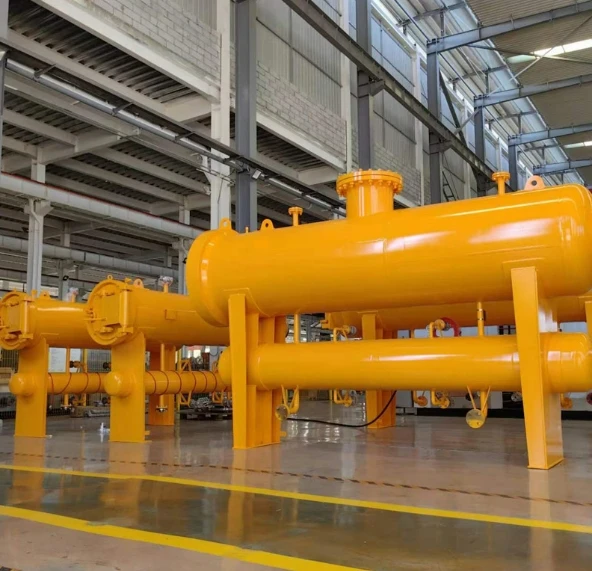
Dec . 11, 2024 13:22
Back to list
Creating Effective Filters with Seamless Separation Techniques
Understanding Filter Separators A Deep Dive into Their Functions and Importance
Filter separators play a crucial role in various industrial processes, particularly in the oil and gas sector. They are designed to separate different components of a fluid mixture, ensuring that the end product meets the required specifications for purity and performance. In this article, we will explore the workings of filter separators, their applications, and the importance of maintaining optimal filtration processes.
What is a Filter Separator?
A filter separator is a device used to segregate solid particles from liquid or gas mixtures. The primary aim of a filter separator is to improve the quality of the output by removing contaminants. This device often employs a two-step process first, it filters out solid particles, and second, it separates liquids based on their densities.
In essence, filter separators work on the principle of physical differences in size, density, or state of matter, allowing for efficient separation of components. Commonly used in the refining and processing of oil, filter separators prevent corrosion and erosion within pipelines and machinery by ensuring that unwanted materials do not enter critical systems.
How Do Filter Separators Work?
The operation of a filter separator can be broken down into several key stages
1. Intake The fluid mixture enters the separator, often through a designated inlet. At this stage, the mixture can contain both solids and immiscible liquid phases.
2. Filtration As the mixture flows through the separator, solids are trapped by filter media, which can range from simple mesh screens to advanced porous materials. The choice of filter media is critical as it directly affects the efficiency of filtration.
3. Separation After filtration, the remaining liquid is subjected to gravitational forces or centrifugal action, depending on the separator design. This process leads to the separation of lighter and heavier liquid phases.
filter separator

4. Discharge Finally, the separated solids and liquids are discharged through designated outlets. The clean liquid can then be processed further, while the solid waste needs to be dealt with appropriately.
Applications of Filter Separators
Filter separators find applications in various industries
- Oil and Gas In refining operations, these separators are essential for removing suspended particles and water from crude oil, ensuring that the final product is free from contaminants.
- Pharmaceuticals Here, filter separators are used to ensure the purity of liquid formulations or active pharmaceutical ingredients (APIs) by removing any particulates that could affect product quality.
- Food and Beverage In this industry, filter separators help clarify liquids, remove sediment, and maintain hygiene standards by ensuring that no unwanted particles mix with consumable products.
Importance of Regular Maintenance
To ensure the effective operation of filter separators, regular maintenance is paramount. Over time, filter media can become clogged with particulates, which can impede fluid flow, reduce efficiency, and ultimately lead to increased operational costs. Routine inspection and replacement of filter elements, along with proper cleaning protocols, can significantly enhance the lifespan of a filter separator.
In conclusion, filter separators are vital components in numerous industrial applications, serving the essential function of ensuring the purity of fluids by removing solid contaminants. Understanding their operation and significance can lead to improved efficiency and product quality in various sectors, making them invaluable in today's industrial landscape. Proper maintenance further ensures that these systems continue to operate optimally, underscoring their importance in maintaining the integrity of fluid processing operations.
Latest news
-
Safety Valve Spring-Loaded Design Overpressure ProtectionNewsJul.25,2025
-
Precision Voltage Regulator AC5 Accuracy Grade PerformanceNewsJul.25,2025
-
Natural Gas Pressure Regulating Skid Industrial Pipeline ApplicationsNewsJul.25,2025
-
Natural Gas Filter Stainless Steel Mesh Element DesignNewsJul.25,2025
-
Gas Pressure Regulator Valve Direct-Acting Spring-Loaded DesignNewsJul.25,2025
-
Decompression Equipment Multi-Stage Heat Exchange System DesignNewsJul.25,2025

